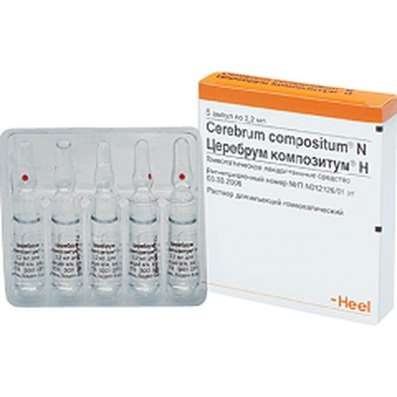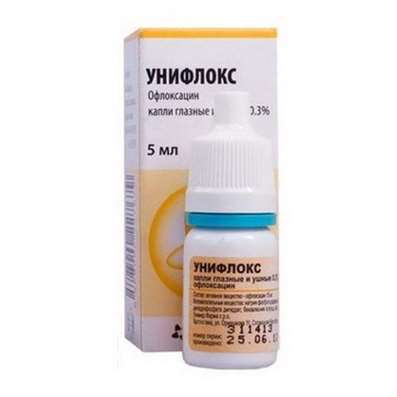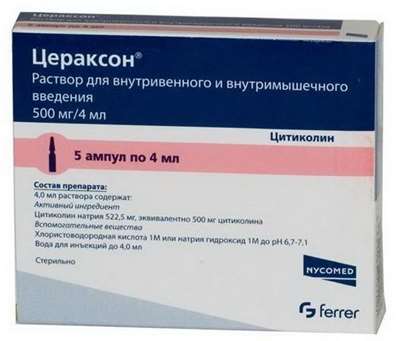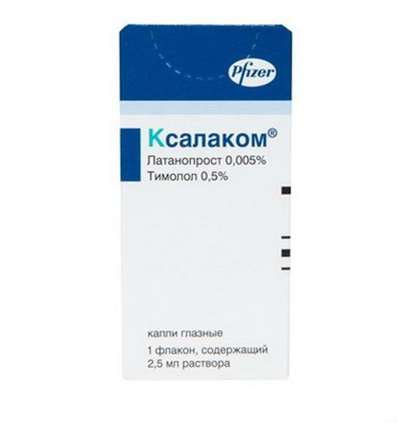Instruction for use: Thymoglobuline
I want this, give me price
Dosage form: Lyophilizate for the preparation of a solution for infusions
Active substance: Immunoglobulinum antithymocytarum
ATX
L04AA04 Immunoglobulin antimitocyte (rabbit)
Pharmacological group:
Immunodepressants
The nosological classification (ICD-10)
D61.9 Aplastic anemia, unspecified: Myelophthisis anemia; Anemia hypoplastic; Partial anemia; Aplasia of the bone marrow; Aplastic anemia; Congenital hypoplastic anemia; Bone marrow hypoplasia; Hypoplastic anemia; Hematopoietic disorders; Hereditary hypoplastic anemia; Normochromic-normocytic anemia
T86 Dying and rejection of transplanted organs and tissues: Transplant disease vs. host; The rejection crisis in organ and tissue transplantation; The crisis of immunological incompatibility in organ transplantation; Incompatibility of tissues; Graft rejection; Graft rejection; Rejection reactions during organ transplantation; Rejection reactions during tissue transplantation; Graft versus host response; Rejection of transplant rejection; Graft-versus-host syndrome; Fabric incompatibility
Z94 Presence of transplanted organ and tissue: Allogeneic transplantation; Allotransplantation; Autotransplantatio.; Gomotransplant; Isotransplantation; Transplantation; Orthotopic transplantation
Composition
Lyophilizate for solution for infusion 1 fl.
active substance: Immunoglobulin antimitocyte (rabbit) 25 mg
Auxiliary substances: glycine - 50 mg; Sodium chloride - 10 mg; Mannitol - 50 mg
Description of dosage form
Lyophilizate for the preparation of a solution for infusions: creamy white powder.
Pharmachologic effect
Mode of action - Immunosuppressive.
Pharmacodynamics
Rabbit antitimocytic human Ig is a selective immunosuppressive drug that affects T-lymphocytes.
Mechanism of action
Reducing the number of lymphocytes is probably the primary mechanism of immunosuppression caused by rabbit antitumocyte Ig, which recognizes most of the molecules involved in the T cell activation cascade in the transplant rejection reaction, such as CD2, CD3, CD4, CD8, CD11a, CD18, CD25, HLA -DR and HLA class I.
T-lymphocytes are eliminated from the bloodstream by complement-dependent lysis and, more likely, due to opsonization of T-lymphocytes with their subsequent elimination by the monocyte-phagocytic system.
Rabbit antimitocyte Ig, in addition to reducing the number of T-lymphocytes, causes activation of other functions of lymphocytes associated with their immunosuppressive activity.
In vitro, at a concentration of about 0.1 mg / ml, ThymoglobulineŽ activates T lymphocytes and stimulates their proliferation (in the same way for CD4 + and CD8 + subpopulations) with the synthesis of IL-2 and interferon-γ and CD25 expression. This mitogenic activity is realized mainly through the CD2-mediated pathway. In higher rabbit concentrations, antitumocyte Ig suppresses the proliferative lymphocyte response to other mitogens, inducing a posttranscriptional blockade of interferon-γ and CD25 synthesis, but without reducing the secretion of IL-2. In vitro, the drug ThymoglobulineŽ does not activate B-lymphocytes.
The low risk of developing B-cell lymphoma in patients treated with ThymoglobulineŽ can be explained by the following reasons:
- the lack of activation of B-lymphocytes and, as a result, the absence of their differentiation into plasma cells;
- antiproliferative activity against B-lymphocytes and some lymphoblastic cell lines.
During the course of immunosuppression after transplantation in patients receiving treatment with ThymoglobulineŽ, deep lymphopenia develops as early as 1 day after the initiation of treatment (a decrease in the number of lymphocytes by more than 50% compared to the baseline value). Lymphopenia persists throughout the treatment period and after the termination of the course of therapy. On average, about 40% of patients at the end of the 3rd month there is a reduction in the number of lymphocytes by more than 50% of the baseline, but a decrease in the number of CD4-lymphocytes persists for a long time and is still observed after 6 months, resulting in an inversion of the CD4 ratio / CD8. Monitoring of subpopulations of lymphocytes (CD2, CD3, CD4, CD8, CD14, CD9 and CD25) confirmed the wide range of specific binding of the preparation of TymoglobulinŽ to T-lymphocytes. During the first 2 weeks of treatment, the absolute number of all subpopulations of lymphocytes with the exception of B lymphocytes and monocytes is markedly reduced (by more than 85% for CD2, CD3, CD4, CD8, CD25, CD56 and CD57).
Pharmacokinetics
After the first infusion of a 0.75 mg / kg dose of a kidney transplant to a recipient of the kidney transplant, the concentration of rabbit Ig in the blood serum ranges from 10 to 40 μg / ml, constantly decreasing by the time of the next infusion (T1 / 2 - 2-3 days). By the end of the 11-day course of treatment, Cmin of rabbit Ig gradually increases and reaches 20-170 μg / ml. After the cessation of treatment, a gradual decrease in the amount of this Ig in the blood is observed. Nevertheless, in 80% of patients rabbit Ig can be detected in the blood plasma even after 2 months after the end of therapy.
Approximately in 40% of patients during the first 15 days after the start of treatment with the drug ThymoglobulineŽ, antibodies to rabbit Ig are rapidly formed, which leads to a faster decrease in its Cmin in serum.
Indication of the drug Thymoglobuline
Immunosuppression in organ transplantation: prevention and treatment of transplant rejection reactions;
Prevention of acute and chronic "graft versus host" reaction after hematopoietic stem cell transplantation;
Treatment of an acute "graft versus host" reaction, resistant to GCS therapy;
Treatment of aplastic anemia.
Contraindications
Hypersensitivity to rabbit proteins or any component of the drug;
Presence of acute or chronic infections;
Development of allergic reactions to the previous administration of the drug TimoglobulineŽ.
With caution: patients who have previously received rabbit Ig, because There is a risk of developing reactions according to the type of serum sickness.
Application in pregnancy and lactation
Since animal studies are inadequate and it is impossible to conclude that there is a potential risk to humans, the preparation of ThymoglobulineŽ in pregnancy should be used only if the benefit to the mother exceeds the risk of using this medication for the fetus.
It is not known whether rabbit anti-thymocyte Ig is excreted in breast milk. Due to the fact that other Ig are excreted into breast milk, breastfeeding should be discontinued for the duration of the ThymoglobulineŽ preparation.
Side effects
The safety of the drug ThymoglobulineŽ was studied in 240 patients who received the drug to prevent the reaction of acute graft rejection after a kidney transplantation operation.
Adverse reactions listed below represent generalized data for all undesired actions noted in this study, regardless of their connection with the preparation ThymoglobulineŽ.
The frequency of occurrence was determined as follows: very often (≥1 / 10), often (from ≥1 / 100 to <1/10).
Violations from the blood and lymphatic system: very often - lymphopenia, neutropenia, thrombocytopenia.
Disturbances from the respiratory system, chest and mediastinal organs: often - dyspnea.
Disorders from the digestive tract: often - diarrhea, swallowing disorders, nausea, vomiting.
Disturbances from the skin and subcutaneous tissues: often - itching, skin rash.
Disturbances from the musculoskeletal and connective tissue and systemic reactions: often - myalgia.
Infectious and parasitic diseases: very often - infections.
Benign, malignant and unspecified neoplasms (including cysts and polyps): often - malignant tumors.
Vascular disorders: often - hypotension.
General disorders and disorders at the injection site: very often - fever; Often - chills.
Immune system disorders: often - serum sickness.
Reactions infusion (RI), and disorders of the immune system: RI may occur on administration of the preparation ThymoglobulineŽ after 1 or 2 minutes infusion in a single course of treatment. Clinical manifestations of RI can be expressed by the following signs and symptoms: fever, chills, shortness of breath, nausea / vomiting, diarrhea, hypotension or hypertension, discomfort, skin rash and / or a severe headache. RI of the drug ThymoglobulineŽ is usually easily expressed and rapidly passes, and is amenable to correction by a decrease in the rate of infusion and / or appropriate drug therapy. However, there are reports of the development of severe anaphylactic reactions and in rare cases (in the absence of emergency treatment of patients with epinephrine (adrenaline) -. On the development of anaphylactic reactions with fatal outcome has been reported RI, manifested in the form of a syndrome of cytokine release (SEC) relating to the release cytokines by activated monocytes and lymphocytes. On the serious and potentially life-threatening SEC reported rarely. In the period of post-marketing surveillance noted rare cases of severe SEC, accompanying vshegosya cardiorespiratory dysfunction (including hypotension, acute respiratory distress syndrome, pulmonary edema, myocardial infarction, tachycardia and / or death.
Post-marketing surveillance of the drug recorded reports of reactions such as fever, skin rash, arthralgia and / or myalgia, indicating a possible development of serum sickness. Serum sickness can occur between 5 and 15 days after the start of therapy with the drug ThymoglobulineŽ. Symptoms usually pass by themselves or are quickly eliminated by the introduction of GCS.
Also reported were local adverse reactions such as pain at the site of injection and peripheral thrombophlebitis.
Undesirable reactions due to immunosuppression: infections, recurrence of infection and sepsis were noted in cases of use of the drug ThymoglobulineŽ in combination with several immunosuppressive drugs. In rare cases, development of malignant tumors has been noted, including but not limited to post-transplant lymphoproliferative disease, as well as other lymphomas and solid tumors.
Interaction
It is necessary to take into account undesirable reactions when using the following combinations of the drug ThimoglobulineŽ with the medicines listed below.
- Ciclosporin, tacrolimus, mycophenolate mofetil: the risk of excessive immunosuppression with a risk of lymphoproliferation;
- live attenuated vaccines: the risk of developing severe forms of vaccine infection with possible fatal outcome. This risk increases if the patient already had a decrease in immunity caused by the underlying disease (bone marrow aplasia).
Rabbit antitumocyte Ig can induce the formation of antibodies that react with other rabbit Ig. The drug ThymoglobulineŽ probably does not affect the results of routine clinical laboratory studies using Ig.
However, the effect of the drug ThymoglobulineŽ may be manifested in immunological tests based on the use of rabbit antibodies, cross-compatibility studies or in cytotoxicity tests with paneled antibodies.
Incompatibility
Based on a single study of compatibility, it was noted that the combination of the drug ThymoglobulineŽ, heparin and hydrocortisone with an infusion solution of glucose leads to the formation of a precipitate, and should therefore be avoided. Due to the lack of other compatibility studies, the preparation of ThymoglobulineŽ should not be mixed in the same container with other medicinal products, except as indicated in the section "Method of administration and dose".
Dosing and Administration
IV, in the form of infusions.
Preparation of the infusion solution
The contents of the vial with gentle shaking are dissolved in 5 ml of water for injection (the resulting concentration of Ig is 5 mg / ml). The reconstituted solution should be clear or slightly opalescent, not containing undissolved particles. If insoluble particles are present, continue shaking the bottle gently until they disappear. However, the dissolution time should not exceed 2 minutes. If the particles are still stored, the contents of the vial cannot be used.
It is recommended to use reconstituted solution immediately after its preparation. Each vial is only for single use. Depending on the required daily dose, it may be necessary to reconstruct the lyophilizate in several vials of the ThymoglobulineŽ preparation.
After reconstitution of the lyophilizate in each of the vials, the solutions obtained are combined and the daily dose thus obtained is diluted in one of the infusion solutions (sodium chloride, isotonic solution for injection, 0.9%, or glucose 5% solution for injection) until the final infusion volume is from 50 to 500 ml (usually 50 ml / fl.).
It is recommended the immediate introduction of a diluted drug. If the diluted product can not be used immediately, it is allowed to store it for no more than 24 hours at a temperature of 2 to 8 ° C, provided that when the reconstitution and dilution of the drug solution are carried out, the conditions of the controlled aseptic are met.
Any residues and consumables must be disposed of in accordance with the regulations in force.
The drug should be injected slowly into a large vein through a systemic filter (0.2 μm) to ensure clearance from traces of insoluble particles of the drug.
The rate of administration should be adjusted so that the total duration of the infusion is at least 4 hours.
Rabbit antimitocyte Ig is usually used in combination with several immunosuppressive drugs.
Before the start of treatment, it is recommended to perform a preliminary intravenous injection of GCS and antihistamines.
Dosing regimen
Doses of the drug Thymoglobuline Ž depend on the indications for use, the scheme of administration and a possible combination with other immunosuppressive drugs. Below are the standard recommendations for the dosing regimen. Treatment can be stopped without a gradual dose reduction.
Immunosuppression in organ transplantation
Prevention of acute graft rejection reaction: 1-1.5 mg / kg / day for 2-9 days after kidney, pancreas or liver transplantation and for 2-5 days after cardiac transplantation, which corresponds to a cumulative dose of 2-7.5 Mg / kg - after heart transplantation and 2-13.5 mg / kg - after transplantation of other organs.
Treatment of acute rejection of transplant rejection: 1.5 mg / kg / day for 3-14 days, which corresponds to a cumulative dose of 4.5-21 mg / kg.
Prevention of acute and chronic "graft versus host"
After bone marrow transplantation or hematopoietic stem cell transplantation from related HLA-non-identical donors or from unrelated HLA-identical donors, it is recommended that in adults, the ThymoglobulineŽ preparation should be administered at a dose of 2.5 mg / kg / day 1-4 days before transplantation, Which corresponds to a cumulative dose of 7.5-10 mg / kg.
Treatment of an acute "graft versus host" reaction, resistant to GCS therapy
The dose is selected individually and usually ranges from 2 to 5 mg / kg / day for 5 days.
Treatment of aplastic anemia
2.5-3.5 mg / kg / day for 5 days, which corresponds to a cumulative dose of 12.5-17.5 mg / kg.
Correction of the dose
When developing thrombocytopenia and / or leukopenia (including lymphopenia and neutropenia), dose adjustment is required. In those cases where thrombocytopenia and / or leukopenia are not a manifestation of the underlying disease or are not associated with the pathology for which the drug ThymoglobulineŽ was used, it is recommended:
- dose reduction if the number of platelets is from 50,000 to 75,000 cells / mm3 or the number of leukocytes is from 2000 to 3000 cells / mm3;
- suspension of treatment with ThymoglobulineŽ in the case of persistent severe thrombocytopenia (<50000 cells / mm3) or leukopenia (<2000 cells / mm3).
Overdose
Symptoms: with an accidental overdose, may develop leukopenia (including lymphopenia and neutropenia) and thrombocytopenia.
Treatment: these manifestations are reversible and eliminated by dose adjustment or discontinuation of therapy. Antidote to anti-thymocyte Ig does not exist.
Special instructions
The drug ThymoglobulineŽ should be used only in a hospital setting under strict medical supervision.
If an anaphylactic reaction occurs, the infusion should be stopped immediately and appropriate therapy initiated. Any subsequent administration of the drug ThymoglobulineŽ should only be carried out after a thorough assessment of the relationship between possible risks and potential benefits.
The dose selection for the preparation of ThymoglobulineŽ, containing rabbit anti-thymocyte Ig, differs from that for other antimitocyte Ig (ATG), tk. Protein composition and concentrations vary depending on the type of ATG used. Therefore, it should be ensured that the prescribed dose is applicable for the drug being administered.
Accurate compliance with the recommended dosage and duration of infusion can reduce the likelihood and severity of RI. In addition, a decrease in the rate of infusion can also minimize many of the listed RIs. Preliminary administration of antipyretic drugs, GCS and / or antihistamines may reduce both the incidence and severity of these adverse reactions.
During the treatment with the drug ThymoglobulineŽ and after it, the number of lymphocytes and platelets must be monitored. The severity of lymphopenia and thrombocytopenia may decrease with a decrease in the dose of the drug.
It is recommended to carefully monitor the patient, as well as anti-infectious prophylaxis with the simultaneous administration of the drug ThymoglobulineŽ with other immunosuppressive drugs.
In the process of production of rabbit Ig, components of human origin (formaldehyde treated erythrocytes and thymus cells) are used.
Standard measures to prevent the transfer of infectious agents in the use of medical products obtained using human biological material include careful selection of biological material, as well as the use of effective measures for decontamination / elimination of viruses in the production process. However, the possibility of transmission of infectious agents cannot be completely ruled out. This risk also applies to unknown viruses or other types of infectious agents. The measures taken have been recognized as effective against envelope viruses such as: HIV, hepatitis B and hepatitis C viruses, and the non-enveloped hepatitis A virus.
However, the measures taken may have limited effectiveness with respect to non-enveloped viruses, for example parvovirus B19. Infection with parvovirus B19 can be dangerous for the fetus and for individuals with certain types of immunodeficiency and anemia. The safety of the use of live attenuated vaccines in patients during therapy with the drug ThymoglobulineŽ has not been investigated; Thus, immunization with live attenuated vaccines is not recommended for patients who recently received the drug ThymoglobulineŽ.
Special recommendations for the infusion of the drug ThymoglobulineŽ
As with any infusion, the administration of the drug ThymoglobulineŽ can cause pain, swelling and redness at the injection site. The recommended method of administration of the drug ThymoglobulineŽ is infusion into the main veins; At the same time, it is possible to introduce into the peripheral veins.
Influence on the ability to drive a car or perform work that requires an increased speed of physical and mental reactions. Based on possible unwanted reactions that may occur during the infusion of the drug ThymoglobulineŽ (in particular - SIC) patients are not recommended to drive vehicles or engage in other potentially hazardous activities.
Release Form
Lyophilizate for the preparation of a solution for infusion, 25 mg. Lyophilizate in an amount equivalent to 25 mg of active ingredient, in a glass of Type I glass, sealed with a chlorobutyl stopper with fluoropolymer coating and an aluminum cap with a plastic cap of the "Flip-off" type. On 1 fl. In a cardboard box.
Manufacturer
Genzyme Poliklonals S.A. 1541, Avenue Marcel Mérieux, 69280, Marci-l'Etoile, France.
The owner of the registration certificate: Genzyme Europe BV. Guimiyr 10, 1411, DD Naarden, The Netherlands.
Claims of consumers on the quality of the drug, as well as information on undesirable phenomena that occurred during its use, should be sent to the Federal Service for Supervision in the Sphere of Health and Social Development of the Ministry of Health and Social Development of the Russian Federation: 109074, Moscow
As well as to the representative office of Sanofi-aventis Group in Russia
Conditions of supply of pharmacies
On prescription.
Storage conditions of the drug Thymoglobuline
At 2-8 ° C (do not freeze). Transportation - at the same temperature. It is allowed to transport at a temperature of 9-25 ° C for 72 hours.
Keep out of the reach of children.
Shelf life of the drug Thymoglobuline
3 years.
Do not use after the expiry date printed on the package.

 Cart
Cart





